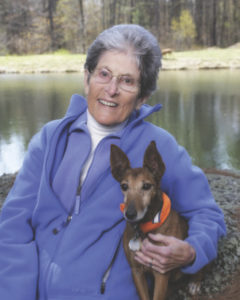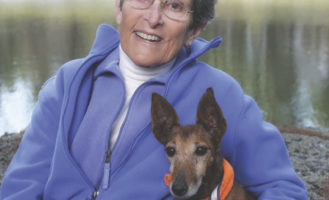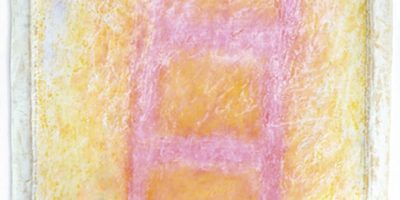Lilith Feature
Of an Honorable Antiquity
“May we carry our mothers forth in our bellies,” wrote renowned poet, Pulitzer Prize winner, and United States poet laureate, Maxine Kumin. It’s a line that I would regularly quote when I wrote baby-naming ceremonies as a rabbi. Later, when our family kept goats and chickens and I’d find myself, of an afternoon, sweeping out the hen house, I’d think of Kumin: “the disciplined life of the barnyard.” Kumin often wrote in a plain style about farm chores, and bred Arabian and quarter horses on her farm, PoBiz, in New Hampshire.
Mostly, though, I thought of Kumin when I was stuck with more than my fair share of parenting. She and poet Anne Sexton famously became friends when, chafing at suburban housewifery in the 1950’s, they took an adult ed. poetry workshop that belatedly started their careers. After Sexton’s suicide, Kumin wrote many poems to her (she called Sexton “a better sister than any I … could have conjured”), including one in which she wears Sexton’s jacket and writes, sacramentally, “I will be years … leaning my ribs against this durable cloth.”
It came as a wonderful surprise, then, to see that Kumin, 88, had sent Lilith two very Jewish poems about her great-grandfather, Elias Rosenberg, along with accompanying text. I’d been aware of Kumin’s feminist, and broadly maternal, sensibility, but not of her Jewish one, and I called her at PoBiz Farm to talk about the poems and to ask why she’d written about her great-grandfather.
“He speaks to me because he’s the farthest back,” she said. “And because my mother had told me a wonderful detail. That he was a redhead who never cut his beard. He wore it tucked into his belt.”
“I have this three-page letter of his, from 1895, hanging framed on my study wall, that gave rise to the poem, ‘For My Great-Grandfather: A Message Long Overdue.’ I marvel at the descriptive language, at the anguished effort this man is making in his non-native tongue to heal a family rift,” a rift occasioned by Elias having married, after the death of his wife, a much younger woman. “He was a poet.”
Elias wrote the three-page letter after Kumin’s mother had been born and he’d received a photo of the young family. “It is impossible for me to gaze on the picture before me as portrayed by the Artist and not be impressed with the realization that they are My People,” he wrote, “and to pray that God in His Infinite Mercy may bless them even as he blessed Jacob.”
Kumin remembered this second, younger wife, “…my step-great-grandmother, who lived her last years in the Sinai Home for the Aged in Baltimore and came by train once or twice a year to Philadelphia to stay with us. Most vividly, I remember her recounting her own fondest childhood recollection—that of sitting on her father’s shoulders to catch a glimpse of Abraham Lincoln passing by on parade. The setting was Baltimore. Great-Grandma’s story thrilled me. How American it was! How deep my roots! It never occurred to me to fault my opportunistic ancestor for sewing Confederate uniforms.”
I asked Kumin about the other poem she sent Lilith, “On Being Asked to Write a Poem for the Centenary of the Civil War.”
About the line, “rooted in grateful guilt,” she said, “I used to have terrible nightmares that the Nazis were pursuing me. My whole Jewish cohort suffered from the ‘grateful guilt’.”
“And why did you choose the words ‘praying hats’ instead of ‘yarmulkes’?” I asked.
“‘Yarmulkes’ wouldn’t have fit the line,” she said. (Kumin’s poetry is renowned for closely patterned sound.) She also reduced the number of her great-grandfather’s progeny, she said, from twelve to eight, “because the sound of ‘twelve’ is almost two syllables.” (Kumin’s ear is astonishing.)
“And the ‘buckle and a candlestick’?” I asked.
“The facts in this poem are unvarnished,” Kumin offered, “except for the Confederate Army buckle which I added in the interest of thickening authenticity. The candlestick is a simple brass menorah that my ancestor is reputed to have carried in his pack as he traveled, shank’s mare, from Baltimore to Virginia. Much mended, it does appear to be of an honorable antiquity.”
“We are how we were raised,” she said as we ended our talk. “Friday night was family night, and everyone came for supper and my father read, in English, ‘And it was evening and it was morning the sixth day.’ It made it clear that the Jewish day started in the evening. I loved that.”





